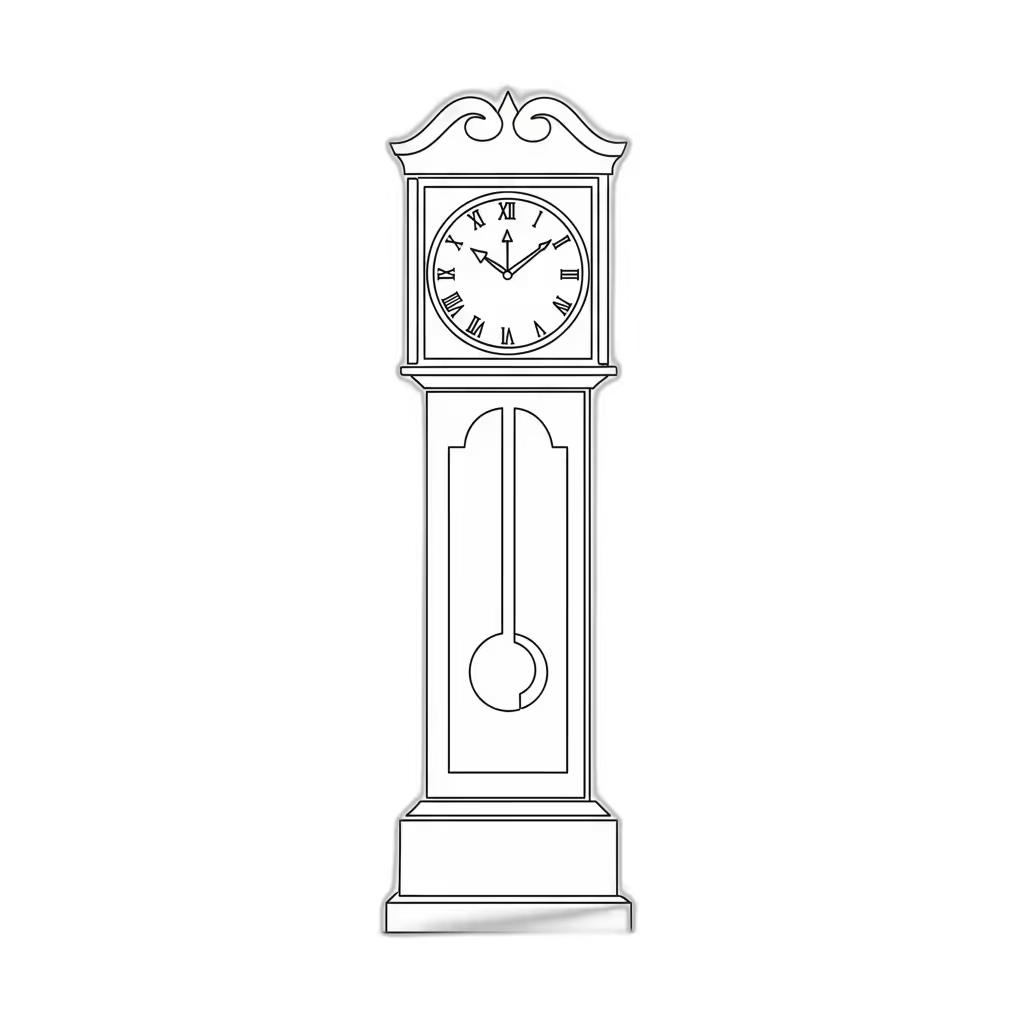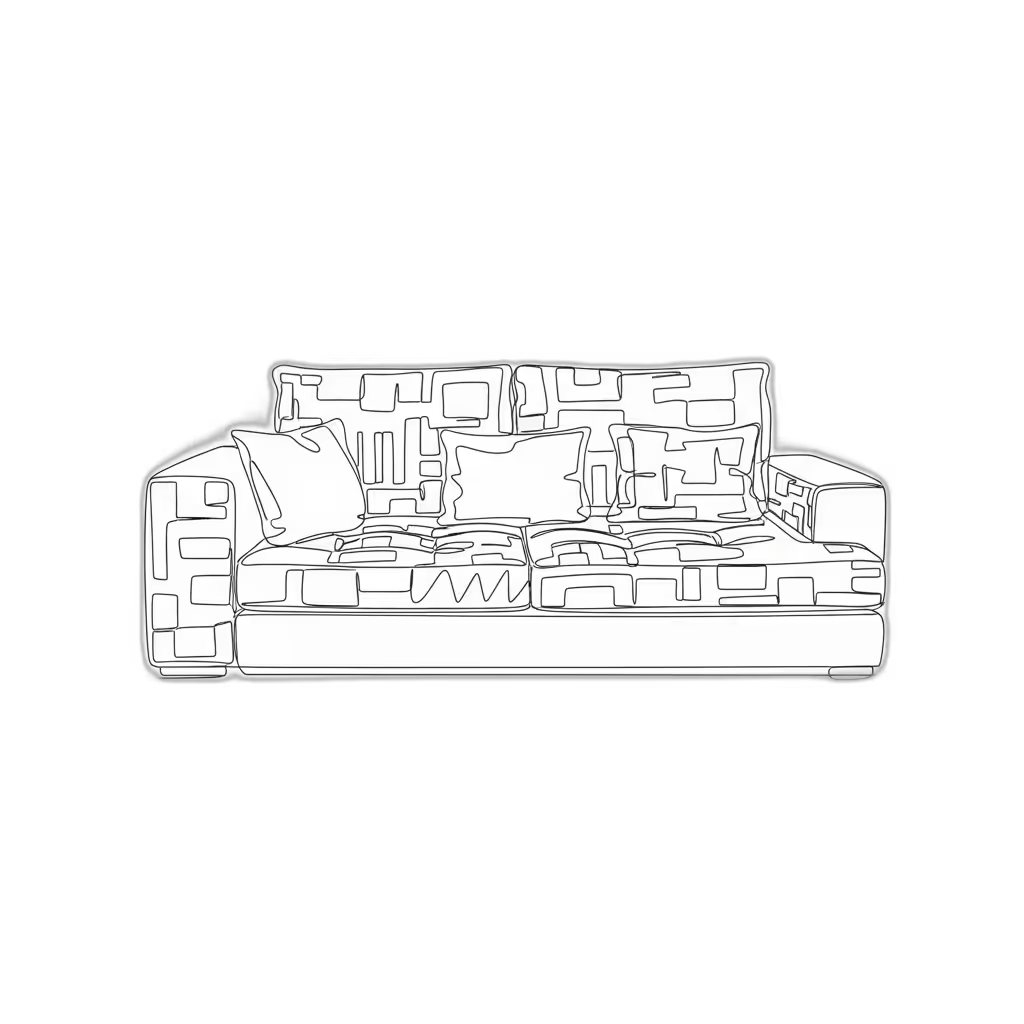






5-Star Valuation Services, Loved by Hundreds
{{sectionName}}

{{sectionName}}

{{sectionName}}

{{sectionName}}

How our Valuation Process Works
Defensible appraisals for any legal or tax need.
Rather than relying on a single lead appraiser or fixed team, we maintain an extensive network of credentialed specialists, each with deep expertise in particular asset types and valuation purposes. This enables us to match every engagement with the right expert while delivering exceptionally fast turnaround times, even under the most demanding deadlines.
When you require a defensible appraisal you can trust, AppraiseItNow delivers.


Easy & Fast Online Appraisal Process
Our unique model allows us to meet super tight deadlines for tax filings, court dates, internal company project timelines.
Learn more about our online appraisal services!

Industry-Leading Appraisal Speed
Our unique business model means that we always have a credentialed appraiser available to work on your project, and we can meet obscure and short deadlines for tax filings, court submissions, internal projects, and more. Even if that means preparing your appraisal within 24 hours!

Any Asset Covered
This means that we can appraise any type of asset including furniture, artwork, jewelry, business inventory, machinery & equipment, cars, boats, full operating businesses and more!

Servicing Enterprises & Individuals
Our company services anyone from an individual with a single couch to an enterprise needing contents of multiple offices or warehouses appraised.

Defensible for Any Purpose
View all Locations
Professional appraisers conduct an in-depth examination considering key factors such as age, condition, craftsmanship, materials, and historical significance. They carefully assess the furniture's physical characteristics, including the quality of construction, original materials, and overall preservation state. Specific design elements like wood type, joinery techniques, surface finishes, and manufacturing methods play crucial roles in determining value.
The appraisal process extends beyond visual inspection, incorporating extensive research into comparable market sales, auction records, and current collector trends. Appraisers analyze historical context, examining how specific design periods, manufacturers, and artistic movements impact a piece's desirability and potential financial value. Unique provenance, rare design elements, and original condition can dramatically influence an item's overall appraisal.
Expertise in furniture history, materials science, and market dynamics allows appraisers to provide nuanced, accurate valuations that reflect both the item's intrinsic qualities and its current market positioning. This comprehensive approach ensures a thorough and precise assessment that goes well beyond simple visual estimation.
Antique furniture appraisers represent a critical subset of this profession, focusing on pieces with significant historical value. They possess deep knowledge of period-specific design elements, manufacturing techniques, and cultural influences. Their expertise allows them to authenticate and precisely value items over a century old, distinguishing genuine antiques from skillful reproductions.
Contemporary furniture appraisers specialize in more recent designs, tracking current market trends and understanding the nuanced value of modern pieces. These professionals are particularly adept at evaluating furniture from the past few decades, considering factors like designer reputation, manufacturing quality, and current aesthetic preferences.
Collectible furniture appraisers occupy a unique niche, concentrating on pieces that hold special significance within collector communities. They understand the complex ecosystem of collector markets, assessing value based on rarity, historical importance, and desirability among specialized enthusiasts.
Specialty furniture appraisers develop deep expertise in specific styles or categories, such as mid-century modern or artisan-crafted pieces. Their targeted knowledge allows for precise valuations that consider the subtle characteristics unique to particular design movements or crafting traditions.
Furniture restoration appraisers bring technical insight into how preservation and restoration impact an item's value. They evaluate the potential and limitations of restoring a piece, providing critical guidance on maintaining or enhancing its market worth through careful intervention.
Selecting the right appraiser requires careful consideration of the specific furniture in question and the purpose of the valuation, ensuring a comprehensive and accurate assessment.
Insurance documentation represents a primary driver for obtaining furniture appraisals. Comprehensive valuations ensure homeowners can secure appropriate coverage and expedite claims processes in the event of loss, theft, or damage. Precise documentation becomes instrumental in protecting significant investments and providing clear evidence of an item's worth to insurance providers.
Estate planning and legal proceedings also benefit substantially from professional furniture appraisals. When distributing assets among heirs, accurate valuations help create equitable divisions and minimize potential familial conflicts. These assessments provide transparent, objective information about furniture's market value, facilitating smoother inheritance transitions and legal settlements.
Charitable donations involving high-value furniture require professional appraisals to validate tax deduction claims. When furniture exceeds certain monetary thresholds, documented assessments become essential for substantiating donation values and maximizing potential tax benefits.
Divorce proceedings frequently rely on furniture appraisals to determine fair property division. Professional evaluations offer neutral, fact-based assessments that help reduce emotional tension and streamline settlement negotiations by providing clear, defensible property values.
Collectors and antique enthusiasts particularly benefit from professional appraisals, gaining insights that inform purchasing, selling, and maintaining valuable collections. Understanding precise market values empowers informed decision-making and prevents potential financial misjudgments.
Ultimately, furniture appraisals represent more than simple monetary assessments. They provide comprehensive insights that protect financial interests, facilitate legal processes, and offer peace of mind across numerous personal and professional contexts.
The online appraisal process is designed to be both flexible and comprehensive. Clients are usually required to provide extensive information about their furniture, including precise dimensions, manufacturing details, current condition, age, and any distinctive characteristics that might influence its value. High-quality, multiple-angle photographs are crucial for enabling appraisers to make accurate assessments.
Advanced technological platforms now support various interactive appraisal methods. Live video consultations through platforms like Zoom or Skype enable real-time communication, allowing appraisers to request additional visual information or ask specific questions about the item. This interactive approach helps bridge the gap between traditional in-person assessments and remote evaluations.
Remote appraisals offer significant advantages, particularly for individuals with scheduling constraints, mobility limitations, or geographical challenges. Clients can undergo professional furniture valuations from the comfort of their home, eliminating the need for complicated logistical arrangements or transportation of potentially fragile items.
While online appraisals provide remarkable convenience, clients should understand that the accuracy of the assessment depends heavily on the quality and comprehensiveness of the information submitted. Clear, well-lit photographs and detailed, honest descriptions are essential for obtaining a reliable valuation.
The digital appraisal landscape continues to evolve, with professionals leveraging sophisticated technologies to deliver precise and trustworthy evaluations. For those seeking a convenient, efficient approach to understanding their furniture's value, online appraisals represent a modern solution to traditional valuation challenges.
What Makes Furniture More Than Just an Object?
Furniture is far more than mere functional objects; they are intricate storytellers that embody history, artistry, and profound significance. Each piece carries layers of meaning that elevate it from a simple household item to a cherished possession or valuable asset.
Exploring the Deeper Dimensions of Furniture
Historical Significance
Furniture serves as a tangible reflection of cultural and artistic evolution. Different pieces capture the essence of their era through:
- Distinctive design elements
- Representative artistic movements
- Social and economic context of their creation
The Art of Craftsmanship
The true value of furniture extends beyond its physical form, rooted in the skill and creativity of its makers. Key indicators of exceptional craftsmanship include:
- Intricate handcrafted details
- Unique design approaches
- Precision in construction
- Signature techniques of renowned artisans
Material Significance
The choice of materials dramatically influences a piece's quality, durability, and aesthetic appeal. Important considerations include:
- Quality of wood selections
- Rare and exotic material usage
- Durability and longevity
- Aesthetic and textural characteristics
Provenance and Heritage
The history of ownership can transform an ordinary item into an extraordinary collectible. Factors that enhance a piece's narrative include:
- Notable previous ownership
- Documented historical significance
- Connection to important events or locations
- Verification by expert appraisers
Emotional Resonance
Beyond monetary value, furniture often carries deep emotional significance. These connections manifest through:
- Family heirlooms passed through generations
- Personal memories and experiences
- Sentimental attachments that transcend financial worth
Understanding furniture as more than mere objects reveals a rich tapestry of cultural, artistic, and personal narratives waiting to be discovered and appreciated.
Why Professional Appraisal Matters for Your Valuable Pieces
Understanding the true value of your furniture goes beyond simple monetary assessment. Professional furniture appraisal provides comprehensive insights that protect and inform your most valuable possessions.
What Professional Appraisal Delivers
- Comprehensive Value Assessment: Professional appraisers evaluate furniture through multiple critical lenses, including:
- Age and historical context
- Current condition
- Design and craftsmanship
- Provenance and rarity
- Strategic Financial Planning: Accurate appraisals support critical decisions related to:
- Insurance coverage
- Estate planning
- Potential resale strategies
- Inheritance distributions
Beyond Monetary Value
While financial assessment is crucial, professional appraisal also illuminates the deeper narrative of your furniture pieces. Experts can uncover hidden historical significance, unique characteristics, and potential collector's value that might otherwise remain unrecognized.
Market Dynamics and Asset Protection
Furniture markets continuously evolve, influenced by changing trends, consumer preferences, and collector interests. Professional appraisers provide:
- Current market value assessments
- Insights into potential appreciation
- Identification of unique value factors
The Emotional and Financial Investment
Many furniture pieces transcend mere objects, representing family history, personal milestones, or artistic expression. A professional appraisal honors both the emotional and financial dimensions of these treasured possessions.
By investing in expert evaluation, you gain a comprehensive understanding of your assets, ensuring they are properly recognized, protected, and valued.
Navigating the Landscape of Furniture Valuation
Furniture appraisal represents a sophisticated process that extends far beyond a simple price tag. It's a comprehensive evaluation that integrates multiple critical factors to determine an item's true value and significance.
Key Elements of Furniture Valuation
Style and Historical Context
Understanding a piece's design era is fundamental to accurate valuation. Different design movements carry unique characteristics that significantly influence value:
- Art Deco's geometric precision
- Mid-Century Modern's clean lines
- Victorian era's ornate detailing
Condition Assessment
The physical state of furniture dramatically impacts its market value. Professional appraisers conduct meticulous examinations focusing on:
- Original finishes and hardware integrity
- Signs of wear and potential damage
- Quality and authenticity of any restoration work
Provenance Significance
A piece's documented history can exponentially increase its value. Key provenance factors include:
- Verifiable ownership history
- Connections to notable individuals or events
- Documentation of origin and craftsmanship
Market Dynamics
Furniture valuation is not static but a dynamic process influenced by:
- Consumer preferences
- Economic conditions
- Supply and demand trends
Professional appraisers bring expertise in navigating these complex valuation landscapes, ensuring a comprehensive and accurate assessment of furniture value.
Key Factors That Determine a Piece's True Worth
Understanding Furniture Valuation: Critical Factors Impacting Worth
Determining the true value of furniture requires a nuanced approach that considers multiple interconnected elements. These key factors provide a comprehensive framework for assessing a piece's market potential and intrinsic worth.
1. Age and Authenticity
- Antique furniture (100+ years old) typically commands higher prices
- Historical significance dramatically influences valuation
- Verified authenticity from:
- Renowned makers
- Specific historical periods
- Original documentation
- Replicas and reproductions generally hold substantially lower value
2. Condition Assessment
- Primary determinant of market value
- Well-preserved pieces are most desirable
- Evaluation criteria include:
- Minimal wear and tear
- Structural integrity
- Original finishes
- Professional restoration can enhance value
- Extensive damage significantly reduces potential price
3. Material and Craftsmanship Quality
- Construction materials critically impact valuation:
- Solid wood
- High-quality veneers
- Specialized metalwork
- Handcrafted pieces more valuable than mass-produced items
- Notable design styles increase desirability:
- Mid-century modern
- Art deco
- Traditional artisan techniques
4. Provenance and Historical Significance
- Documented ownership history elevates value
- Premium pricing for pieces with:
- Notable previous owners
- Connection to significant historical events
- Traceable lineage
- Collector interest driven by compelling narratives
5. Market Demand Dynamics
- Valuation influenced by current trends
- Style popularity directly impacts pricing
- Factors affecting market demand:
- Contemporary design preferences
- Collector interests
- Cultural aesthetic shifts
- Regular market research essential for accurate assessment
By comprehensively analyzing these interconnected factors, individuals can develop a sophisticated understanding of furniture valuation, enabling more informed marketplace decisions.
Inside the Appraiser's Toolkit: Techniques and Insights
Professional Furniture Appraisal Techniques
Professional furniture appraisers employ sophisticated methodologies to deliver accurate and reliable valuations. Understanding the core principles of furniture appraisal is crucial for both professionals and clients navigating this nuanced field.
Key Appraisal Techniques
- Visual Inspection
- Comprehensive examination of furniture condition
- Detailed assessment of materials and craftsmanship
- Analysis of joinery techniques and surface treatments
- Identification of unique markings or manufacturer labels
- Evaluation of wear patterns and age indicators
- Extensive Research and Documentation
- Deep investigation of historical sales data
- Review of auction results and market trends
- Comprehensive documentation of furniture history
- Analysis of provenance and previous ownership
- Understanding of artistic movements and manufacturing techniques
- Comprehensive Market Analysis
- Assessment of current market landscape
- Identification of emerging collector interests
- Evaluation of economic conditions
- Analysis of restoration trends
- Determination of piece rarity
The Role of Professional Expertise
An exceptional furniture appraisal transcends technical analysis. Professional appraisers synthesize gathered information through a lens of deep expertise, ensuring clients receive precise, nuanced, and fair market valuations for diverse purposes such as sales, insurance, and estate planning.
By integrating meticulous research, keen market insights, and refined professional judgment, furniture appraisers provide invaluable assessments that respect both the intrinsic and monetary value of historical and contemporary furniture pieces.
The Hidden Benefits of a Professional Furniture Assessment
Comprehensive Benefits of Professional Furniture Appraisals
A professional furniture assessment offers strategic advantages that extend far beyond simple valuation, providing critical insights for homeowners, collectors, and design professionals.
Unlocking Historical and Artistic Significance
- Discover detailed provenance and historical context of furniture pieces
- Identify specific design styles, historical periods, and artisan craftsmanship
- Enhance understanding of furniture's cultural and artistic heritage
- Inform potential restoration and preservation strategies
Critical Insurance and Financial Protection
- Obtain accurate, professional documentation for insurance coverage
- Ensure comprehensive protection against loss or damage
- Streamline potential insurance claim processes
- Provide definitive proof of item value and condition
Strategic Estate Planning and Asset Management
- Generate unbiased, professional valuations for inherited furniture
- Facilitate transparent asset distribution among family members
- Minimize potential conflicts during estate settlements
- Create clear documentation for long-term family asset management
Enhanced Sales and Marketing Intelligence
- Gain expert insights into current market trends and valuations
- Determine optimal pricing strategies for potential sales
- Understand market demand for specific furniture styles and periods
- Maximize potential return on investment for furniture assets
Property Value Enhancement
- Substantiate furniture quality and value for potential buyers
- Create documented proof of home's curated interior assets
- Increase property marketability through professional documentation
- Demonstrate meticulous care and investment in home furnishings
Investing in a professional furniture assessment provides comprehensive benefits that transcend simple monetary valuation, offering strategic insights across personal, financial, and aesthetic domains.
Preparing Your Treasures for a Comprehensive Appraisal
When preparing your treasured furniture for a comprehensive appraisal, strategic steps can help ensure a smooth process and accurate valuation. Proper preparation not only aids the appraiser but also allows you to present your items in the best possible light.
Understanding the Appraisal Process
Before your appraisal, familiarize yourself with the key assessment factors:
- Age of the furniture piece
- Overall condition
- Material composition
- Provenance or historical background
- Current market demand
Essential Documentation Preparation
Compile a comprehensive portfolio for your furniture, including:
- Original purchase receipts
- Manufacturer tags
- Previous appraisal reports
- Historical ownership documentation
- Chronological photographs documenting condition
Cleaning and Presentation Best Practices
Follow these guidelines for preparing your furniture:
- Perform gentle cleaning without over-restoring antique pieces
- Remove surface dust and debris
- Polish carefully to highlight natural features
- Clear surrounding areas to allow full item inspection
- Avoid aggressive restoration that might compromise original value
Comprehensive Documentation
Create a detailed inventory that includes:
- Complete ownership history
- Unique item characteristics
- Documented repairs or modifications
- Significant historical context
- Any known provenance details
Appraiser Interaction Preparation
Be ready to provide in-depth information about your furniture, including:
- Maintenance history
- Previous care techniques
- Family or historical stories
- Specific preservation methods used
By meticulously preparing your treasured furniture, you can facilitate a more effective and informative appraisal process, ultimately ensuring you obtain the most accurate valuation based on the item's true worth in today's market.
Decoding Your Appraisal Report: What You Need to Know
When you receive a furniture appraisal report, understanding its critical components is essential for comprehending the valuation of your cherished items. A comprehensive report typically includes several key elements that contribute to an accurate and detailed assessment.
Essential Components of a Professional Furniture Appraisal Report
1. Detailed Item Description
- Comprehensive overview of the furniture piece
- Specific details including:
- Style and design characteristics
- Estimated age
- Original manufacturer
- Unique identifying features
- Establishes the item's historical and artistic significance
2. Comprehensive Condition Assessment
- Thorough evaluation of the furniture's physical condition
- Detailed analysis of:
- Wear and tear
- Previous repairs
- Structural alterations
- Potential restoration needs
- Critical factor in determining overall value
3. Precise Market Analysis
- Comparative valuation methodology
- Research sources include:
- Recent auction results
- Gallery sales data
- Private transaction records
- Provides a reliable and current market value estimate
4. Appraisal Purpose Specification
- Clearly defined context for the valuation
- Common purposes include:
- Insurance documentation
- Potential resale
- Charitable donation
- Estate planning
- Ensures appropriate valuation approach
5. Photographic Documentation
- High-quality visual evidence
- Provides:
- Detailed condition verification
- Visual authentication
- Supporting documentation for valuation
6. Professional Appraiser Credentials
- Verification of appraiser's expertise
- Includes:
- Professional qualifications
- Specialized experience
- Area of furniture expertise
A meticulously prepared furniture appraisal report serves as more than just a valuation document. It provides invaluable insights into your furniture's historical context, market position, and potential future value, empowering you with comprehensive knowledge about your investment.
Your Furniture Appraisal Questions Answered
Understanding Furniture Appraisals
Furniture appraisals are sophisticated professional evaluations that provide critical insights into the value of your cherished pieces. Whether you're dealing with family heirlooms, antique collections, or valuable contemporary designs, a comprehensive appraisal offers clarity and peace of mind.
What is a Furniture Appraisal?
A furniture appraisal is a detailed professional assessment that determines the monetary value of furniture items by considering multiple key factors:
- Age of the piece
- Overall condition
- Current market demand
- Historical or artistic significance
- Rarity and provenance
Common Reasons for Furniture Appraisals
- Insurance Protection
Ensure comprehensive coverage for valuable furniture items in case of loss, damage, or theft.
- Estate Planning
Accurately assess furniture values to facilitate fair distribution among heirs and manage inheritance strategies.
- Sales and Auctions
Obtain precise market valuations to set competitive prices and make informed selling decisions.
- Tax and Legal Documentation
Provide official documentation for significant transactions, charitable donations, or legal requirements.
The Appraisal Process: What to Expect
A professional furniture appraisal involves a thorough and methodical evaluation:
- Detailed visual inspection of the item
- Comprehensive questioning about the piece's history
- Review of any available documentation
- Analysis of current market conditions
- Professional written report with comprehensive valuation
Appraisal Timeline
The duration of a furniture appraisal depends on various factors, including the number and complexity of items. Typically, clients can expect to receive a comprehensive report within:
- Simple items: 3-5 business days
- Complex or multiple items: 1-3 weeks
By understanding the appraisal process, you can approach furniture valuation with confidence and informed expectations.
The Expertise Behind Furniture Valuation
When it comes to furniture appraisal, expertise is crucial in determining the fair market value of each piece. A professional appraisal involves thorough research, an understanding of current market trends, and a keen eye for detail. Qualified appraisers typically possess specific training and experience in identifying the characteristics that influence value.
Understanding Furniture Value Factors
Several key factors influence the appraisal of furniture:
- Age and Condition: The age of a piece can dramatically impact its value. Antiques often command higher prices when they are well-preserved. Critical considerations include:
- Degree of wear and tear
- Quality of previous repairs
- Overall structural and aesthetic integrity
- Provenance and Brand: The historical background and origin of furniture significantly influence its valuation. Important aspects include:
- Manufacturer reputation
- Designer recognition
- Historical significance
- Authenticity documentation
- Material and Craftsmanship: The quality of materials and construction are paramount in determining value. Key elements include:
- Type and rarity of materials used
- Complexity of construction techniques
- Evidence of handcrafted details
- Unique design elements
- Market Demand and Trends: Furniture valuation is dynamic and responsive to current market conditions. Considerations include:
- Current interior design trends
- Collector interest
- Regional and global market preferences
- Cyclical style revivals
The Role of Professional Appraisers
Professional appraisers are precision instruments in the valuation process. They go beyond surface-level assessment by:
- Conducting comprehensive comparative market analyses
- Applying specialized knowledge across various furniture styles and periods
- Providing objective, detailed valuation reports
- Understanding nuanced market fluctuations
Their expertise ensures clients receive accurate, well-researched valuations that reflect the true worth of their furniture. By leveraging deep industry knowledge and systematic evaluation techniques, professional appraisers help individuals make informed decisions about buying, selling, insuring, or preserving valuable furniture pieces.
Emerging Trends Shaping the Furniture Market
The furniture market is continuously evolving, driven by dynamic consumer preferences, technological innovations, and sustainability considerations. Understanding these emerging trends is crucial for professionals navigating the complex landscape of furniture appraisal.
Key Market Transformation Trends
Sustainability and Eco-Friendly Materials
The furniture industry is experiencing a significant shift towards environmentally conscious design. Key characteristics include:
- Growing consumer preference for handcrafted, sustainable pieces
- Increased demand for furniture made from reclaimed or recycled materials
- Higher valuation for pieces demonstrating ecological responsibility
Smart Furniture Technology
Technological integration is revolutionizing home furnishings, with innovative features becoming increasingly valuable:
- Furniture with integrated charging ports
- Pieces featuring adjustable technological components
- Built-in smart features like speakers or connectivity options
Minimalism and Multi-Functionality
Urban living is driving demand for space-efficient, versatile furniture designs:
- Rising popularity of compact, multi-purpose furniture
- Increased value for items with convertible or hidden storage features
- Preference for streamlined, minimalist aesthetic
Vintage and Antique Market Dynamics
The resurgence of vintage furniture reflects evolving consumer preferences:
- Growing appreciation for unique, historically significant pieces
- Increased market value for well-preserved vintage items
- Importance of understanding historical context and provenance
E-commerce Transformation
Digital platforms are reshaping furniture market interactions:
- Expanded market accessibility through online platforms
- Changes in consumer purchasing behaviors
- New pricing strategies emerging from digital marketplace dynamics
Staying informed about these evolving trends enables appraisal professionals to provide more nuanced, accurate assessments that reflect the current market's complexity and dynamism.
Maximizing Value: Your Furniture Appraisal Roadmap
Furniture appraisal is a critical process for understanding the true value of your furnishings. Whether you're managing an estate, preparing for insurance purposes, or exploring your collection's worth, navigating this process strategically can help you maximize your investment.
Understanding Furniture Appraisal
Furniture appraisal is a comprehensive assessment that evaluates multiple critical factors, including:
- Condition of the piece
- Craftsmanship quality
- Historical age
- Current market demand
The primary objective is to provide an accurate and objective estimate of an item's monetary value based on current market conditions.
Steps to a Successful Appraisal
1. Comprehensive Market Research
Before initiating an appraisal, conduct thorough preliminary research by:
- Identifying similar pieces in style and period
- Comparing material composition
- Understanding current market value ranges
2. Selecting Qualified Professionals
Choose appraisers who are:
- Professionally accredited
- Experienced in furniture valuation
- Specialized in specific furniture categories
3. Item Preparation
Optimize your furniture's presentation by:
- Cleaning thoroughly
- Performing minor repairs
- Addressing visible wear and tear
4. Documentation Assembly
Compile essential supporting documents such as:
- Original purchase receipts
- Provenance records
- Previous appraisal reports
Post-Appraisal Insights
After receiving your appraisal report, carefully review the comprehensive documentation, which typically includes:
- Detailed item descriptions
- Condition assessments
- Precise valuation conclusions
Understanding these details empowers you to make informed decisions in scenarios like selling, insuring, or maintaining your furniture collection.
Final Considerations
A strategic approach to furniture appraisal provides clarity, peace of mind, and the knowledge needed to make confident decisions about your valuable possessions. By following systematic steps and leveraging professional expertise, you can effectively understand and maximize the value of your cherished pieces.
APPRAISEITNOW APPRAISERS ARE BEST-IN-CLASS & CREDENTIALED BY LEADING APPRAISAL ORGANIZATIONS LIKE THE ISA, ASA, & MORE.





















.svg)














